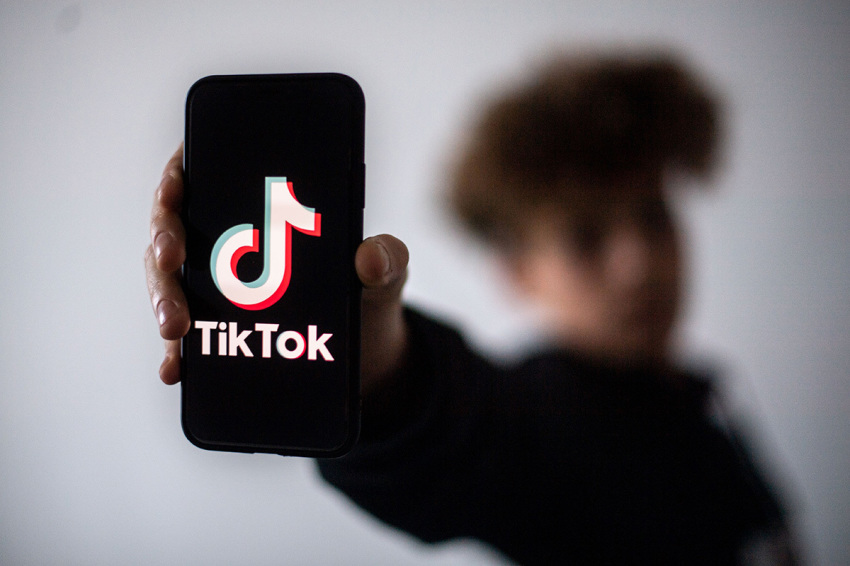Gen Z gets most of its news from social media instead of traditional sources, survey finds

Young adults and adolescents from Generation Z differ significantly from older generations in how they consume the news, according to new research. But a leading Christian ministry warns that it's incumbent on consumers to discern the truth no matter what avenue news is presented.
A poll published Friday by the Walton Family Foundation/Murmuration found that most respondents from Gen Z primarily rely on social media for news more than traditional forms of media.
Researchers assessed 3,227 15 to 25-year-olds and 1,036 adults aged 26 or older through online surveys conducted in early December for a project titled "Gen Z Post Election Research." Respondents were asked various questions about their views, beliefs and information consumption.
The survey for Gen Z voters contains a 1.7% error margin, while the study of adults ages 26 and up had a 3% margin of error.
One survey question asked respondents to choose from a list of sources "that you regularly watch or visit for news or current events."
Respondents from Gen Z were more likely to select YouTube (61%), TikTok (57%), Instagram (51%), Snapchat (43%), Twitter (35%) and Facebook (33%) than traditional news sources like local TV news (24%), network news (23%), or online or physical copies of national newspapers (13%).
While the majority of Gen Z appear to use TikTok as a news source, only 15% of adults over the age of 26 said the same. Less than half of adults over 26 said they regularly use YouTube (40%), Instagram (17%) and Twitter (15%).
While four in 10 Gen Z respondents said that they regularly use Snapchat for updates on news and current events, only 7% of adults ages 26 and over said the same.
While Gen Z tends to rely on other social media platforms to get their news, adults older than 26 are more likely to use Facebook (40%) regularly to get news.
Regarding more traditional news sources, 40% of adults over 26 said they watch network stations such as ABC, CBS and NBC, in contrast to 23% of Gen Z respondents.
Thirty-three percent of adults over 26 said they gain information by watching Fox News, compared to 22% of Gen Zers. How often both generations admitted to watching CNN for news was about the same, with 24% of Gen Z participants and 25% of adults over 26 saying that they turn to the cable network for news.
Paul Batura, the vice president of communications for the Christian parachurch organization Focus on the Family, said the increased reliance on social media and potential for misinformation isn't much different from the realities presented by other forms of news delivery that have developed over the last couple centuries.
"Once upon a time, people received their news from a town crier. Could the crier be trusted and believed? It often depended upon the source and the subject. There is a tendency to romanticize the past," he told The Christian Post.
"Yellow journalism is often attributed to a specific era, but sensationalist reporting simply takes on new forms today. Papers once wanted cash — now news outlets seek clicks. Newspapers have always been biased, if only by what they put it in a story — and what they leave out. That's been the case for generations."
After newspapers came radio and television news, Batura added.
"Many people today longingly pine for the so-called objectiveness of Walter Cronkite — but he was anything but objective. Few people were — or are," he added. "The explosion of digital news, and the popularity of social media as a source is yet one more method of delivery. It seems 'deepfake' media looms on the horizon, threatening to outright deceive and misinform."
"Whether hundreds of years ago or today, Christians are called to be discerning," he continued. "We're to 'test everything' (1 Thess. 5:21) and pray for wisdom. The vehicle of delivery for news is less concerning than the source and subject matter. I know I can trust Dr. Al Mohler on Twitter, unlike a leftist columnist with one of the major news outlets."
While believers across generations may have different "methods and means" of receiving their news, Batura stressed that Christians should be "reading God's Word far more than man's opinions."
"A heart for wisdom — God's point of view — will do wonders when it comes to determining what is true and what is false," Batura said. "The apostle Paul's words should inspire and inform us: 'Do not be deceived: God is not mocked, for whatever one sows that will he also reap' (Galatians 6:7)."
Samantha Kamman is a reporter for The Christian Post. She can be reached at: samantha.kamman@christianpost.com. Follower her on Twitter: @Samantha_Kamman



























